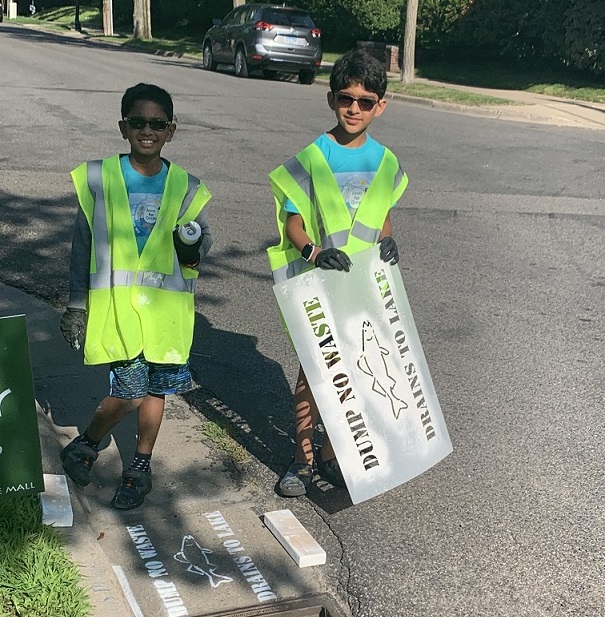
Aeon for Ocean: Saving the Ocean, One Kid at a Time
Aeon for Ocean is proof that children can get involved in causes and make a difference. The organization, started by elementary school student Aeon Bashir, is dedicated to educating children about ocean conservation. We love it when kids become passionate about issues and take matters into their own hands. Which is why we gave Aeon for Ocean one of our Kars4Kids small grants: this is work we can support.
We spoke with Aeon for Ocean Executive Director Menaka Nagarajan, to learn more:
Kars4Kids: Tell us about your co-founder, Aeon.
Menaka Nagarajan: Aeon Bashir is an Ocean Enthusiast and 4rd grader from Eden Prairie, Minnesota. His love for oceans began when he was very little, especially with whales and dolphins. Aeon noticed that there was lack of knowledge about oceans and marine life inland and felt compelled to share what he had learned with his friends and family. At age seven, he founded Aeon for Ocean, a 501(c)(3) nonprofit kids-based ocean conservation organization in Minnesota.
Aeon started this initiative to inspire kids in Minnesota with a love for the ocean and to teach them about marine life and ocean conservation. He hopes not only to teach landlocked kids about the ocean, but to help them understand how their actions here in Minnesota impact environment, the larger watershed, and eventually the oceans themselves. Through our Krill to Whale educational program presentations and local beach clean-ups, Aeon shares his enthusiasm for the ocean in Minnesotan school classrooms and communities.
He hopes other kids will join him in this journey as Krill2Whale ambassadors and this initiative will also create a platform for kids inland, to understand the amazing opportunities in marine science and ocean exploration.
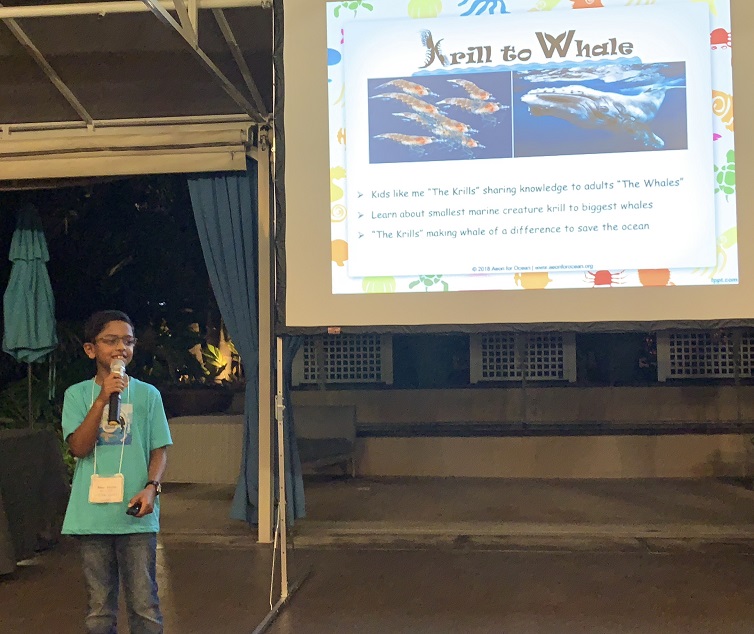
Kars4Kids: Can you talk about the Krill2Whale program? In the Aeon for Ocean lingo, what does it mean to become a “Krill?”
Menaka Nagarajan: Krill2Whale (K2W) is a shared learning program focused on educating kids about marine life and oceans. The program promotes youth leadership around environment conservation and education. It is represented by kids (the Krill) sharing knowledge to adults (Whales), learning about smallest creature Krill to the largest whales, and kids making whale of a difference.
Becoming a Krill or K2W ambassador, enables kids to be leaders in their community around ocean/environment conservation and education. The program also provides them a platform to develop their soft skills and technical skills with opportunity to interact and learn from various marine scientists across the world.
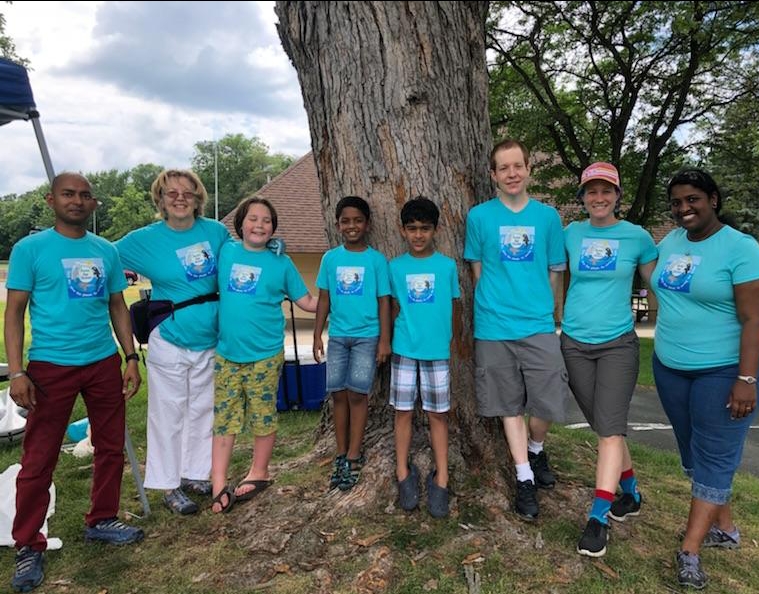
Kars4Kids: What makes a fishery “sustainable?”
Menaka Nagarajan: Sustainable fishing means leaving enough fish in the ocean, respecting habitats and ensuring people who depend on fishing can maintain their livelihoods. HERE’S a great reference from the Marine Stewardship Council.
Kars4Kids: The Aeon for Ocean website suggests using paper over plastic. Isn’t that a danger to the forests? Are we trading one irresponsible practice for another?
Menaka Nagarajan: The best option is to use reusable products. Given plastic vs, paper, paper is a better option than plastic as it decomposes more quickly. Paper also has an impact on the environment with cutting down trees for production, but much less so than plastic. Plastic can take between 400 to 1000+ years to decompose and is very harmful to wildlife.
Kars4Kids: What are some responsible practices for the beach? Is it okay to collect shells to bring home?
Menaka Nagarajan: Aeon for Ocean has some tips for best beach practices:
- Keep the beach clean – Don’t leave any trash or items behind. Remember to discard any trash responsibly in trash cans or reusable bins
- Don’t disturb any tide pool creatures at the beach
- Don’t pick up shells, as this changes and risks damage to the ecosystem while endangering creatures that rely on shells for their survival
Kars4Kids: What are some of the ways children who don’t live near the ocean can take positive action to protect the world’s oceans?
Menaka Nagarajan: Learn about oceans and marine life. Understand how oceans impact us and how we impact oceans, even when we live far inland. Take sustainable actions like using reusable bags, not using straws or balloons, and eating sustainable seafood. Understand that everything is connected and help spread this knowledge to others.
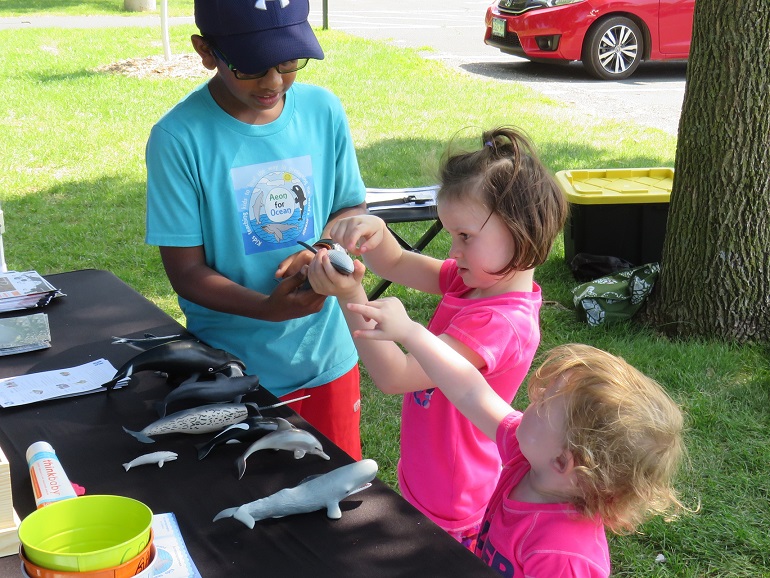
Kars4Kids: What do most people find difficult about preserving the ocean environment? How can this be made easier?
Menaka Nagarajan: Most people don’t know lot about oceans and marine life. They don’t understand the need for ocean preservation or how their actions impact the oceans. When people love and care about something, it is easier for them to take the actions that help to preserve our oceans and the environment.
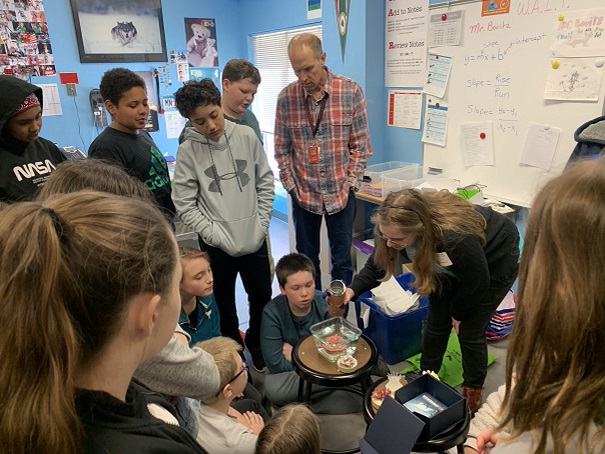
Kars4Kids: How do inlanders benefit from the ocean?
Menaka Nagarajan: There are many ways everyone, including inlanders, benefit from oceans. All lakes, bays, and rivers inland, are connected to oceans through underground connections. Also,
- Oceans provide us air to breathe with 50 to 70 percent of our oxygen coming from the ocean
- Oceans regulate our climate
- Oceans provide food to eat such as fish and seaweed
- Oceans are an important natural resource.
- Oceans help us with transportation and cargo
- Oceans provide recreational opportunities
And many more benefits.
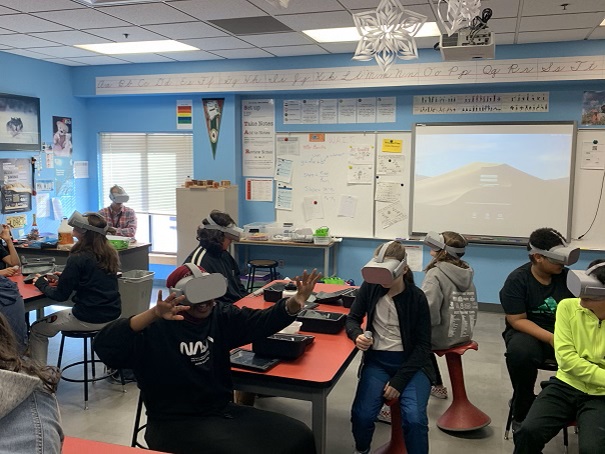
Kars4Kids: Can you explain the term “fossil fuels?” Does fuel come from fossils? How does using public transportation lower the use of these fuels?
Menaka Nagarajan: Coal, crude oil, and natural gas are all considered fossil fuels because they were formed from the fossilized, buried remains of plants and animals that lived millions of years ago. They all contain high carbon content and burning fossil fuels has generated most of the energy required to propel our cars, power our businesses, and keep the lights on in our homes.
Using fossil fuels for energy has exacted an enormous toll on humanity and the environment—from air and water pollution to global warming. Mining, drilling, and burning dirty energy are harming the environment and our health. The burning of fossil fuels by humans is the largest source of emissions of carbon dioxide, which is one of the greenhouse gases that allows radiative forcing and contributes to global warming. Renewable energy sources are better than fossil fuels.
Carbon dioxide makes up 95% of all transportation-related greenhouse gas emissions. Cars, SUVs, and pickup trucks running on conventional gasoline, diesel, and other fuels emit carbon dioxide. Taking public transportation helps reduce our carbon footprint.
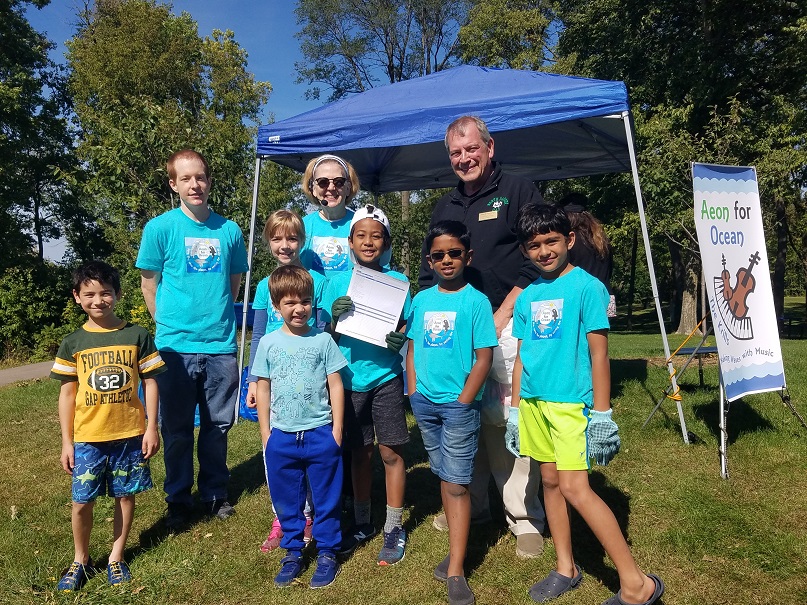
Kars4Kids: What’s next for Aeon for Ocean?
Menaka Nagarajan: Aeon for Ocean is working on various initiatives towards being a pioneer in ocean conservation education for kids and adults inland and also on promoting youth leadership. Our recent virtual reality program to help inlanders see a personal connection to the oceans has been very successful. Our focus is also to create a platform for kids to be able to understand the possibilities and cool opportunities in marine science and ocean exploration.